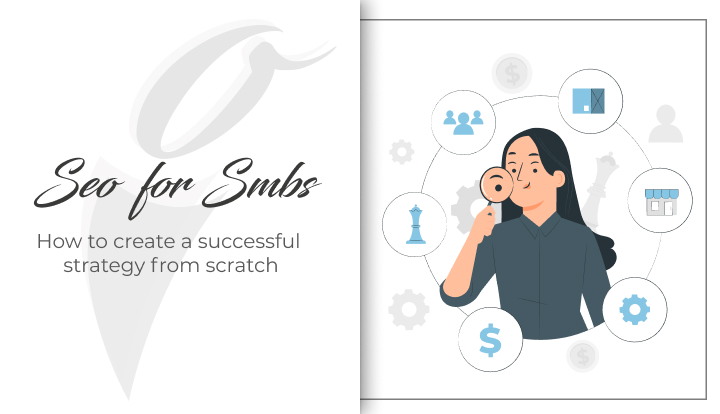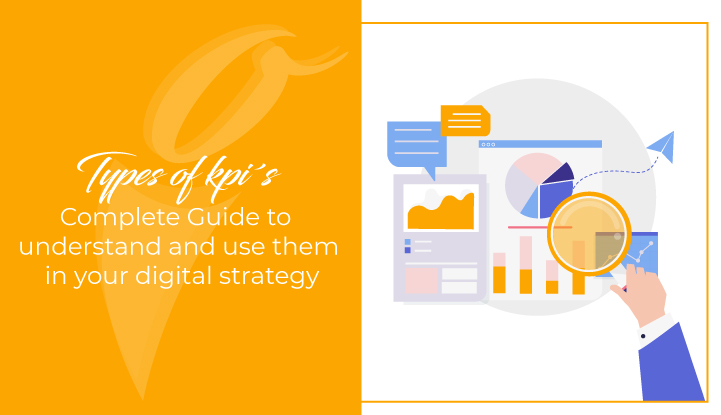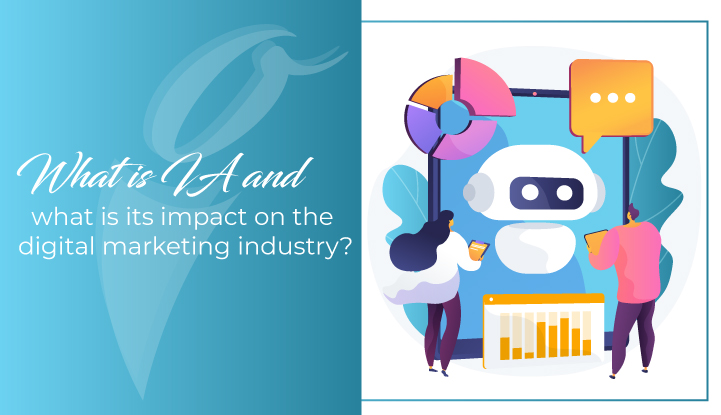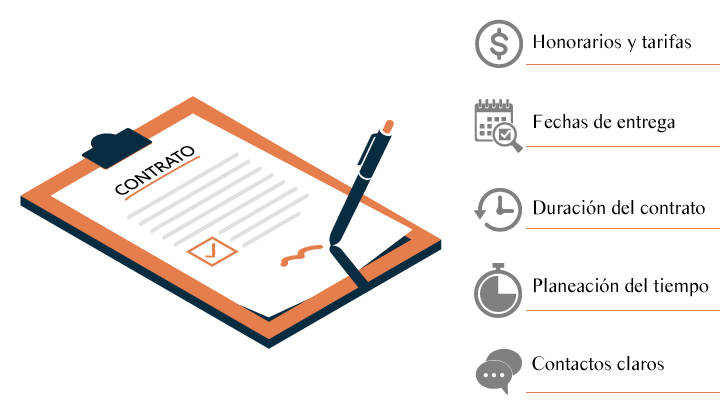SEO for Small Business: How to create a successful strategy from scratch
In the digital age, small and medium-sized enterprises (SMEs) face a unique challenge: to stand out in a crowded marketplace. With millions of websites competing for users’ attention, achieving online visibility has become a critical task for any SME that wants to grow and prosper. This is where SEO, or Search Engine Optimization, comes into play, a powerful tool that can transform a company’s digital presence.
The main objective of this article is to provide SMEs with a clear and practical guide on how to implement an SEO strategy from scratch. In order to achieve this, the following key points will be covered
Importance of SEO for SMEs in today’s digital environment.
SEO is essential for SMEs for several reasons:
- Increased online visibility: SEO helps SMEs appear in the top search results of Google and other search engines. This is crucial because most users do not go beyond the first page of results. Being in the first places significantly increases the chances of attracting visitors to your website.
- Quality organic traffic: Unlike paid advertising, organic traffic is free and often of higher quality because it comes from users who are actively searching for specific products or services. A well-executed SEO strategy attracts these users, increasing the chances of conversion.
- Credibility and trust: Users tend to trust websites that appear in the top search results more. A good positioning improves the perception of authority and professionalism of the SME.
- Market competitiveness: In a competitive market, SEO allows SMEs to stand out from their competitors. A good SEO strategy can provide a significant competitive advantage, allowing SMEs to attract more customers and increase their market share.
- Cost-Effectiveness: In the long run, SEO is more cost-effective than paid advertising. Although it requires an initial investment of time and resources, the cumulative benefits of organic traffic can result in a high return on investment.
- Improved user experience: Part of SEO involves optimizing the structure and content of the website, which improves the user experience. A well-structured, fast and easy-to-navigate website is not only preferred by search engines, but also by users, which can increase customer retention and satisfaction.
- Measurement and Analysis: SEO allows SMEs to measure and analyze the performance of their website through various tools, such as Google Analytics and Google Search Console. This provides valuable data to make informed decisions and adjust strategies as needed.
Keyword research
Identifying Relevant Keywords
Keyword research is the first and one of the most important steps in any SEO strategy. It consists of identifying the words and phrases that users use to search for products, services or information related to your business. For SMEs, this process is crucial to attract relevant and qualified traffic to your website.
Using tools such as google keyword planner, ahrefs and SEMrush
There are several tools that facilitate keyword research:
- Google Keyword Planner: this free tool from Google Ads is ideal for getting started. It allows you to discover new keywords related to your business and see data on search volume and competition for those keywords.
- Ahrefs: This is a paid tool that provides detailed data on search volume, keyword difficulty and which pages are ranking for those keywords. It also provides backlink analysis, which is useful for link building strategies.
- SEMrush: Similar to Ahrefs, SEMrush is a paid tool that provides comprehensive keyword analysis, including traffic data, keyword difficulty and competitive analysis. It also provides information on search trends and content opportunities.
Examples of relevant keywords for SMEs
For an SMB, it’s important to focus on keywords that appeal to your specific audience. Here are some examples:
- Generic keywords: “Italian restaurant”, “clothing store”.
- Local keywords: “coffee shop in Bogota”, “hairdresser in Cali”.
- Long-tail keywords: “best educational toy store in Colombia”, “yoga classes for beginners in medellín”, “yoga classes for beginners in medellín”.
- Informational keywords: “how to choose a good wine”, “tips to take care of indoor plants”.
Competitor analysis
Competitor analysis is a crucial step in understanding what SEO strategies other businesses in your niche are using and uncovering opportunities you may be overlooking.
How to analyze competitors’ keywords and SEO strategies.
- Identify key competitors: Start by identifying who your direct competitors are. These are businesses that offer similar products or services to yours and are located in your same geographic area or market.
- Use analysis tools: Tools such as Ahrefs and SEMrush can help you analyze the keywords for which your competitors are ranking. Enter the competitor’s URL into these tools and get a detailed report on their most successful keywords, organic traffic and backlinks.
- Evaluate keyword difficulty: Not all keywords are worth pursuing. Use these tools to assess keyword difficulty and focus on keywords that have a good balance between search volume and competition.
Identifying untapped opportunities and niches
- Long-tail keywords: Long-tail keywords are more specific phrases and generally less competitive than generic keywords. Although they have a lower search volume, they tend to attract a more qualified audience with higher purchase intent. Example: instead of “shoes”, use “men’s leather shoes in bucaramanga”.
- Local keywords: For SMEs that rely on local clientele, geographically specific keywords are essential. Optimize your website for terms that include your city, neighborhood or region.
- Competitor content analysis: Review your competitors’ content to identify topics or areas they are not covering adequately. You can create content that fills those gaps and attracts an underserved audience.
- Backlinks and relationships: Analyze where your competitors are getting backlinks from. This may reveal opportunities for you to get links from those sources as well, improving your domain authority and search engine rankings.
Keyword research and competitor analysis are critical to an SME’s SEO success. By using the right tools and focusing on less exploited opportunities, SMBs can create an effective SEO strategy that attracts qualified traffic and boosts their online presence.
On-Page Optimization
On-page optimization is a fundamental part of any SEO strategy, as it focuses on improving the content and structure of a website to make it more relevant and attractive to both search engines and users.
Creating quality content
Importance of relevant and useful content
Relevant and useful content is the foundation of any SEO strategy. Search engines value content that answers users’ questions and needs, and reward websites that offer high quality, value-added information.
Types of content to create
- Blogs: Blogs are a great way to share relevant information and keep users engaged. You can write about industry news, useful tips, trends, success stories and more.
- Guides and tutorials: Guides and tutorials provide users with detailed, step-by-step information on a specific topic. They are useful for educating your audience and establishing yourself as an authority in your field.
- Case studies: Case studies are real stories of how your product or service has helped solve a problem or meet a need. They are powerful in demonstrating the effectiveness and value of what you offer.
Titles and meta descriptions
How to write effective titles and meta descriptions.
- Titles: Titles should be descriptive, concise and engaging. They should include the main keyword and capture the user’s attention. Keep titles between 50 and 60 characters to ensure they are fully displayed in search results.
- Meta descriptions: Meta descriptions are a brief summary of the page content and usually appear below the title in search results. They should be informative, persuasive and contain relevant keywords. Keep meta descriptions between 150 and 160 characters.
Examples of good titles and optimized meta descriptions
- Title: “How to optimize your website for SEO: Complete Guide”.
Meta description: “Learn step-by-step how to improve your website’s search engine visibility with this detailed guide to SEO – get started today!” - Title: “The best-kept secrets of content marketing.”
Meta description: “Discover how to create quality content that engages your audience and improves your online presence – effective tips and strategies here!”
Image Optimization
Importance of optimized images.
Optimized images are important for several reasons:
- They improve user experience by making content more visually appealing.
- They help improve ranking in image search results.
- They contribute to website accessibility for the visually impaired.
Use descriptive file names and Alt tags.
- Filenames: Use descriptive filenames that reflect the image content and contain relevant keywords. Avoid generic names such as “image1.jpg” and opt for something more specific, such as “marketing-digital-strategy-seo.jpg”.
- Alt tags: Alt tags are descriptive text that are displayed when an image cannot be loaded or when a user hovers over the image. They should be clear, concise and relevant, and should also include keywords where appropriate.
In summary, on-page optimization is key to improving a website’s performance in search engines. By creating quality content, writing effective titles and meta descriptions, and optimizing images, SMEs can increase their online visibility and attract more qualified traffic to their website.
Link building strategies
Link building is a fundamental part of any SEO strategy, as backlinks are one of the main factors that search engines consider when determining the relevance and authority of a website.
Getting quality backlinks
What Backlinks Are and Why They Are Important
Backlinks, or inbound links, are links pointing to your website from other websites. Search engines consider backlinks as votes of trust and authority, as they indicate that other websites trust your content and consider it valuable. The more quality backlinks your website has, the higher its authority and the better it will rank in search results.
Strategies for getting quality backlinks.
- Collaborations: Collaborating with other companies, bloggers or influencers in your niche is a great way to get quality backlinks. You can offer collaborations in the form of interviews, content co-publications, link exchanges or joint projects that benefit both parties.
- Guest posting: Offering quality content to other websites in exchange for a link is an effective link building strategy. Look for relevant websites in your industry that accept guest posts and offer to contribute valuable and unique content that includes a link back to your website.
- Local directories: Local and industry directories are a great way to get local and industry-specific backlinks. Register your company in local and specialized directories that are well established and relevant to your business.
Link building is an essential part of any SEO strategy and can have a huge impact on a website’s rankings and visibility. By working with an SEO consultant to implement strategies to obtain quality backlinks, SMBs can improve their online authority and increase their search engine rankings.
SEO performance monitoring and analysis
SEO performance monitoring and analysis are essential to evaluate the effectiveness of your strategies and make necessary adjustments to improve results over time.
Use of analysis tools
Recommended tools for SEO performance monitoring
- Google analytics: Google Analytics is a free web analytics tool provided by Google that allows you to track and analyze your website traffic. You can get detailed information about user behavior, content performance and conversions.
- Google search console: Google Search Console is another free tool from Google that provides you with data on how Google sees your website in search results. You can monitor the performance of your pages, fix indexing errors, analyze search queries and more.
Key metrics to track
Organic traffic
Organic traffic refers to the number of visitors coming to your website through unpaid search results. It is a key metric for evaluating the effectiveness of your SEO strategy and the growth of your online audience.
Conversion rates
Conversion rates are the percentage of visitors who take a desired action on your website, such as completing a form, making a purchase or subscribing to an email list. Tracking conversion rates helps you understand how your website is performing in terms of generating leads or sales through organic traffic.
Keyword positions
Tracking the positions of your target keywords in search results helps you evaluate the effectiveness of your SEO strategy and identify areas for improvement. You can use tools like Ahrefs, SEMrush or Google Search Console to track the positions of your keywords and see how they are evolving over time.
Example of performance analysis
For example, using Google Analytics, you can see the increase in organic traffic over time and analyze which pages are generating the most traffic. At the same time, in Google Search Console, you can identify keywords that are driving traffic to your website and make adjustments to your content strategy to further improve your rankings in those areas.
Monitoring and analyzing SEO performance is essential to evaluate the success of your strategies and make necessary adjustments to continually improve. By using tools such as Google Analytics and Google Search Console, and tracking key metrics such as organic traffic, conversion rates and keyword rankings, SMBs can optimize their online presence and increase their visibility in search engines.
Conclusion
Creating an effective SEO strategy is critical to the online success of SMBs. Through a combination of research, implementation and ongoing analysis, SMBs can improve their search engine visibility, attract quality traffic and increase their online business opportunities.
Summary of key steps to create an SEO strategy for SMEs
- Keyword Research: Identify keywords relevant to your business and audience.
- On-Page Optimization: Improve the structure and content of your website to make it more search engine and user friendly.
- Link building: Obtain quality backlinks from relevant and authoritative websites.
- SEO performance monitoring and analysis: Use tools such as Google Analytics and Google Search Console to evaluate performance and make adjustments as needed.
Reiterating the importance of SEO for SME visibility and growth.
Creating an effective SEO strategy is critical to the online success of SMBs. Collaborating with an SEO agency can be key, as through a combination of research, implementation and ongoing analysis, SMBs can improve their search engine visibility, attract quality traffic and increase their online business opportunities.











